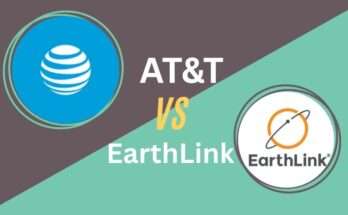Do you want to know the best satellite internet providers in the United States? You may live in a rural area with limited broadband or want satellite as a backup. Today’s satellite plans are more comprehensive than ever. Providers are now offering higher speeds, reliability, and flexibility with the data options. This guide summarizes the top satellite broadband providers. You will learn about speeds, plan features, installation, and what to expect. Continue reading to choose the best high-speed satellite internet for your home or business.
Why Consider Satellite Internet Providers?
- Rural coverage: This is suitable in those regions where cable or fiber has not reached.
- Instant installation: No complicated wiring; most providers provide quick setup with dish/equipment.
- Backup connection: Excellent as a backup internet source to provide access.
- Business, mobile & maritime use: More plans are being introduced to support RV travelers, ships, and remote work spots.
Top Satellite Internet Providers
There are three major providers of satellite internet in the U.S.: Starlink, Viasat, and Hughesnet. There are others, but commercial providers (such as OneWeb to enterprise users) are available to residential customers, so they are the ones to consider for satellite-internet plans and speed.
Starlink: The Fastest Satellite Internet Provider
SpaceX-operated Starlink has entirely reinvented high-speed internet using low-Earth-orbit (LEO) satellites when it launched its satellite constellation. This leap of technology implies:
- Speeds: 100-300Mbps (residential plans)
- Latency: 20-50ms, very, very low compared to traditional GEO satellites
Key Features:
- No data caps (slowing down of data after 1TB)
- No long-term contracts
- Business/enterprise variations and global roaming
Starlink Internet Plans & Pricing
| Plan Category | Monthly Price | Download Speed |
|---|---|---|
| Residential Lite | $80 / month | 50–100 Mbps |
| Residential | $120 / month | 25–220 Mbps |
| Roam – 50 GB | $50 / month | 5–50 Mbps (mobile) |
| Roam – Unlimited | $165 / month | 5–250 Mbps (mobile) |
| Business – Local Priority | From $65 / month | 40–220 Mbps |
| Business – Global Priority | From $250 / month | 40–220 Mbps |
Who should pick Starlink?
Select Starlink when you desire a super-fast Internet connection, reduced latency (more suitable for gaming, video chats), and service nationwide. But you will have a larger equipment cost, and pricing can be expensive compared to the other providers.
Viasat: Best Unlimited Satellite Internet Plans
Viasat has long been a satellite broadband market leader, specializing in a widespread network of geosynchronous satellites.
- Speeds: 25Mbps up to 150Mbps on plans/regions
- Latency: 600ms (increased by GEO orbit)
Key Features:
- Unlimited data (but excessively heavy usage can be deprioritized) with Viasat Unleashed plans
- New plans have no contract requirement
- Outstanding customer service with good user ratings
Viasat Internet Plans & Pricing
| Plan | Starting Price | High-Speed Data Allowance | Contract Term |
|---|---|---|---|
| Essentials | From $49.99/mo | 150 GB High-Speed, then Unlimited Standard Data | 12-month minimum commitment |
| Unleashed | From $79.99/mo (promo) | Unlimited High-Speed Data (soft cap ~850 GB/month) | Month-to-month, no contract |
Who should pick Viasat?
Viasat Internet plan is a good choice when you want fast internet speeds, unlimited data, excellent customer service, and do not require ultra-low latency (competitive gaming, etc.). Excellent for streaming, browsing, and video calls where wired internet is not available.
Hughesnet: Budget-Friendly Satellite Internet
HughesNet deals specifically in cheap satellite internet packages with basic speeds that support basic use and connectivity of the internet.
- Speeds: 25-100Mbps (new 50 & 100Mbps plans)
- Latency: approximately 600ms (may be less in Fusion hybrid regions)
Key Features:
- Reliable service throughout North and South America.
- 100–200GB priority data with unlimited at lower speeds.
- Usually, 24-a 24-month contract.
Hughesnet Internet Plans & Pricing
| Packages | Starting Cost | Costs After 12 Months | Download Speed |
|---|---|---|---|
| Lite | $39.99 per month | $49.99 per month | 25 Mbps |
| Select | $49.99 per month | $74.99 per month | 50 Mbps |
| Elite | $64.99 per month | $89.99 per month | 100 Mbps |
| Fusion | $94.99 per month | $119.99 per month | 100 Mbps |
Who should pick HughesNet?
When you require guaranteed access to browse, emails, or homeschooling, and have fixed monthly charges, the Hughesnet Internet plan is suitable for the simple user or a backup line.
Tips for Choosing High-Speed Satellite Internet
- Comparisons, speeds & data requirements: Not every user will need 300Mbps. Measure your household requirements first before purchasing more.
- Latencies are important to gaming/streaming: Starlink is the current top cop on lowest latency.
- Equipment costs: Evaluate one-time equipment expenses, and also the possibility of renting the equipment.
- Check coverage: Availability varies, even with larger providers, by ZIP code, so be sure to check your location before you sign up.
- Be flexible on contract: Non-contractual plans are useful to cover occasional or backup needs.
Conclusion
Satellite internet providers have brought a new era of connection to Americans. With faster speeds, advanced technologies, and flexible plans, now is the best time to consider this solution. Low-cost satellite internet providers are also helping bridge the digital divide by offering dependable, high-speed connectivity across the U.S. To know more about Satellite internet deals, connect with the Club HDTV customer service number – +1(855)-217-9211.




